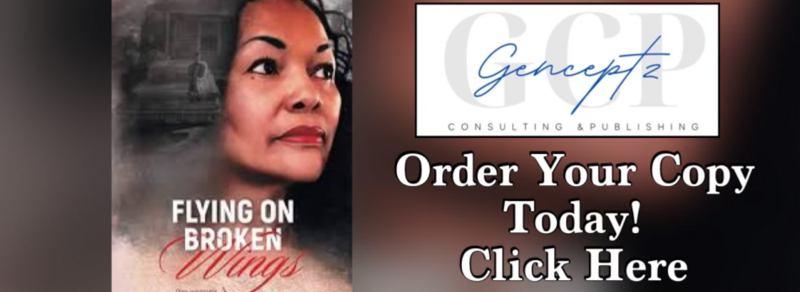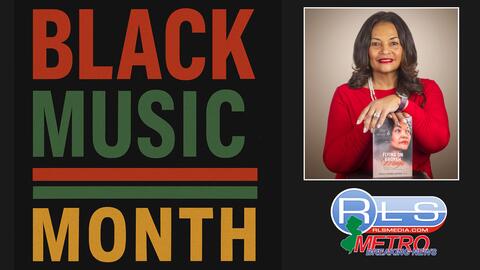By: Dr. Phyllis Bivins-Hudson
Music has always been a grounding force—a power like no other.
For those immersed in high-pressure arenas like politics or law, especially in places where challenges are both systemic and deeply personal, music becomes more than background noise.  It becomes an emotional anchor. It taps into something primal, something profoundly human.
It becomes an emotional anchor. It taps into something primal, something profoundly human.
Unlike the rigid confines of legislation or legal briefs, music allows us to feel, reflect, and express freely.
So, if you're looking for something to sink your teeth into this June, let it be a bite of Black music. Celebrate Black Music Month by immersing yourself in the rhythms, voices, and stories that have shaped generations.
For many activists, politicians, and community leaders, music isn’t just a pastime; it’s therapy. It’s a space to process the weight of decisions, the struggles of those we serve, and the journey of our own identities.
When the world feels heavy on your shoulders, turn to music. Often, that return isn’t just a choice—it’s a necessity.
A way to reconnect with your soul while navigating systems that too often try to strip that away.
Psychologically, music offers structure—rhythm, melody, repetition—mirroring stability in a chaotic world.
Emotionally, it gives voice to what words alone can’t express. For artists and listeners alike, music becomes a tether to the present moment, a source of identity, and a refuge in times of turmoil.
It is where we find calm, clarity, and the strength to carry on.
This Black Music Month, we’ll be celebrating with meaningful conversations about music, featuring three musical giants: the legendary Junius Williams, CeCe Rogers, and Curtis Hudson.
You can hear their stories and insights in their own words on my Thursday Sidebar podcast. Head over to Instagram and follow @drpgbhudson to catch the June 5th and June 26th episodes.
Don’t miss the chance to experience these national treasures. Let music ground you this month—and beyond.
Junius Williams is a nationally recognized attorney, musician, educator, and independent thinker who has been at the forefront of the Civil Rights and Human Rights Movements in this country for decades. 
His life in the Movement in the South and the North has been chronicled in the Civil Rights History Project, a collaborative initiative of the Library of Congress and the National Museum of African American History and Culture, Smithsonian Institution.
As the youngest elected President of the National Bar Association, the oldest and largest organization of black attorneys in the US, he spoke at the United Nations, advocating for genuine democracy on behalf of the people of Zimbabwe, Southern Africa (The NBA paper was adopted by the UN and publicized in seven different languages for international consumption).
He was listed as one of the “100 Most Influential Blacks in America” in Ebony Magazine, ran for Mayor of Newark, and recently retired as the Founding Director of the Abbott Leadership Institute at Rutgers University Newark, where he taught leadership and community organization based on lessons outlined in his book, Unfinished Agenda, Urban Politics in the Era of Black Power.
He sings, plays Blues harmonica, and celebrates with audiences the rich cultural heritage of American music, from the Negro Spirituals, Blues, Jazz, and Gospel, to Hip Hop.
His love of black music in Newark NJ will be memorialized in a documentary of which he is the Executive Producer called, “Can’t You Hear that Sound?”  In 2016, he served as Chairman of Newark Celebration 350, to commemorate the 350th Anniversary of Newark. He is Producer of the “The North”, a digital portrayal of the black empowerment experience in Newark NJ, attracting more than 1.4 million hits in the first 18 months.
In 2016, he served as Chairman of Newark Celebration 350, to commemorate the 350th Anniversary of Newark. He is Producer of the “The North”, a digital portrayal of the black empowerment experience in Newark NJ, attracting more than 1.4 million hits in the first 18 months.
He is also host of the much-acclaimed podcast, “Everything’s Political”, which can be found on You Tube and Spotify.
Williams is the Official Newark Historian, and a Senior Research Fellow at the Center for Economic Policy and Research. He was conferred with an Honorary Doctor of Humane Letters degree by his alma mater, Amherst College.
CeCe Rogers With a remarkable career spanning over three decades, the legendary CeCe Rogers stands as one of the most versatile and influential figures in dance and house music.
A two-time Grammy-nominated singer, musician, and producer, CeCe is widely recognized as a pioneer of House Music—most notably for releasing the first house record ever signed by a major label.
Hailed as one of the most iconic voices in House, CeCe helped shape the genre alongside trailblazers like Marshall Jefferson, Ten City, Joe Smooth, Frankie Knuckles, and Robert Owens.
Personally named “CeCe” by none other than the Godfather of Soul himself, James Brown, he has captivated audiences around the world with his powerful voice, dynamic songwriting, and magnetic stage presence.
Over the years, CeCe has delivered timeless anthems such as “No Love Lost,” “Someday,” and “All Join Hands,” which remain some of the most celebrated tracks in house music history.
Based in New York City, he has collaborated both on stage and in the studio with industry giants including Luther Vandross, Janet Jackson, Whitney Houston, Aretha Franklin, Duran Duran, Sounds of Blackness, and David Guetta.
As the frontman of the legendary band Jestofunk, CeCe lent his unmistakable voice to hits like “Say It Again” and “Can We Live.” A true embodiment of soul, his unique, charismatic sound continues to define and elevate the genre.
CeCe Rogers is not just a voice in House Music—he is the Voice of House.
Curtis Hudson is a seasoned producer, songwriter, and musician whose work has contributed to several multi-platinum albums, including Madonna’s groundbreaking debut Madonna, the Breakin’ movie soundtrack, and Missy Elliott’s The Cookbook. 
Among his many accomplishments, Curtis co-wrote the iconic track “Holiday”, the song that launched Madonna into global stardom and became a cornerstone of pop music history.
With a music career spanning over 40 years, Curtis’s journey began at just 13 years old, playing guitar and bass for various gospel groups in Louisiana.
By 15, he was performing in local bands with his brother Wilbert, honing his craft and building a solid musical foundation.
After high school, he moved to Berkeley, California to pursue a professional music career, performing with local groups before eventually relocating to the East Coast. There, he joined the band Pure Energy, quickly becoming its leader, principal songwriter, and arranger.
In 1980, Pure Energy released its debut LP, Pure Energy, with Curtis writing and arranging the majority of the tracks.
Just three years later, in 1983, he co-wrote “Holiday”, which would go on to become one of Madonna’s most beloved and enduring hits.
The song has been re-released multiple times, performed on nearly all of her tours, and covered or sampled by numerous artists, including Chubb Rock, MC Miker G & DJ Sven (Holiday Rap), and on the Will &Grace album Let the Music Out.
Curtis also co-wrote Madonna’s “Spotlight” on the You Can Dance album. Also, in 1983, he wrote, arranged, and produced “Body Work” by the group Hot Streak, featured in the hit movie Breakin’ and on its multi-platinum soundtrack. In 2005, Missy Elliott sampled Body Work for her hit “Lose Control,” which climbed to No. 3 on the Billboard Hot 100.
Throughout his career, Curtis wrote several hits for Pure Energy, including “Party On,” “When You’re Dancin’,” “Too Hot,” “You’ve Got the Power,” “Break Away,” and “Love Games”—the latter also recorded by UK group 5 Star.
He contributed songs for artists such as Jean Carne (“Anything for Money”, produced by Grover Washington Jr.), Lauriece Hudson, Maxine Singleton, and Hot Streak.
Between 1975 and 1977, he composed original songs for several Off-Broadway plays written by his brother, Wade Hudson.
However, circa 1985 the breakup of Pure Energy and the birth of his son Eric, Curtis shifted focus to family and mentorship.
He opened a home studio where he trained and nurtured young artists, including Naturi Naughton of 3LW, who went on to star in Fame, Notorious, Lottery Ticket, The Client List, and Power—as well as the series Queens.
Curtis’s guidance also helped shape his son Eric Hudson’s remarkable career.
Eric is now one of the music industry’s top producers, with over 23 gold and platinum albums. In 2021, Curtis and Eric won a Grammy Award for Best R&B Album with platinum artist John Legend—their first father-and-son Grammy win. Reflecting on this milestone, Curtis shared, “My greatest accomplishment and success is raising, training, guiding, and being a father to such a wonderful and gifted son."
In addition to his industry work, Curtis served as co-musical director and guitarist for the Male Chorus of New Hope Baptist Church (East Orange) for over 25 years, also contributing to the church’s music committee.
He directed the gospel group The Voices of Hope, formed at the request of the late Rev. Leonidas Young, and was instrumental in establishing the music ministry at Imani Baptist Church of East Orange in 1992.
At the request of Rev. Moses A. Knott, Curtis organized and produced a full gospel musical with the Imani Baptist Choir. Today, Curtis runs his music production company, Touch Associates, while supporting the management of his son’s production and publishing ventures.
Recently, he re-entered the music spotlight with two current radio hits: “Stuck in My Ways” by Elijah Blake featuring Sevyn Streeter and “Worth It” by Mylo Waiters.
Curtis Hudson continues to create, produce, and inspire, leaving an indelible legacy in both music and mentorship. 
These three are true musical heroes—right here from within our very own community. Take a moment during this Black Music Month to explore at least one of the many rich genres of Black music—spirituals, blues, jazz, gospel, R&B, soul, or early hip-hop. Reflect on how these sounds have carried our stories, fueled our resistance, and supported our ongoing struggle for freedom.
Until next time, keep flying on your own wings.
